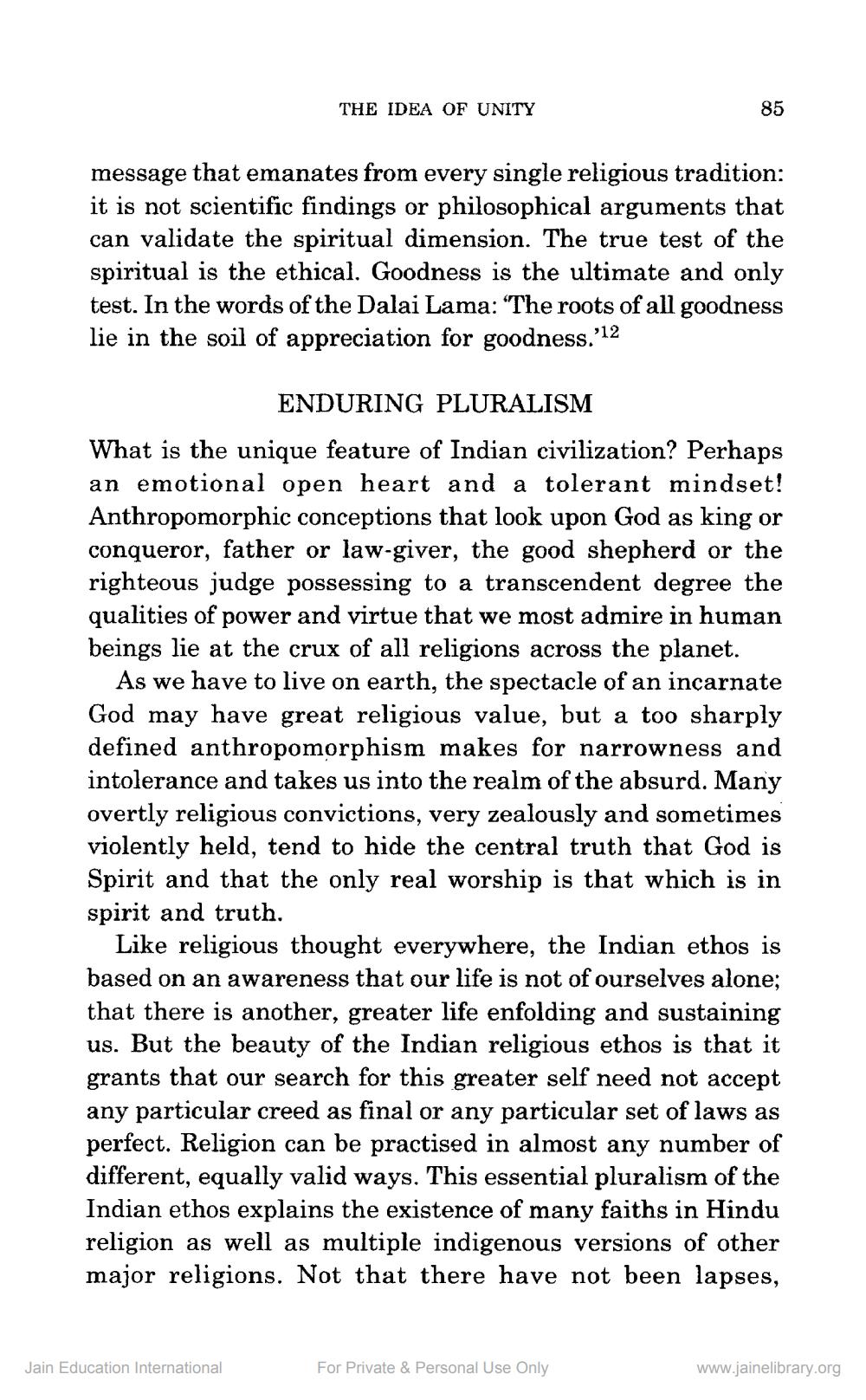________________
THE IDEA OF UNITY
85
message that emanates from every single religious tradition: it is not scientific findings or philosophical arguments that can validate the spiritual dimension. The true test of the spiritual is the ethical. Goodness is the ultimate and only test. In the words of the Dalai Lama: “The roots of all goodness lie in the soil of appreciation for goodness.'12
ENDURING PLURALISM What is the unique feature of Indian civilization? Perhaps an emotional open heart and a tolerant mindset! Anthropomorphic conceptions that look upon God as king or conqueror, father or law-giver, the good shepherd or the righteous judge possessing to a transcendent degree the qualities of power and virtue that we most admire in human beings lie at the crux of all religions across the planet.
As we have to live on earth, the spectacle of an incarnate God may have great religious value, but a too sharply defined anthropomorphism makes for narrowness and intolerance and takes us into the realm of the absurd. Many overtly religious convictions, very zealously and sometimes violently held, tend to hide the central truth that God is Spirit and that the only real worship is that which is in spirit and truth.
Like religious thought everywhere, the Indian ethos is based on an awareness that our life is not of ourselves alone; that there is another, greater life enfolding and sustaining us. But the beauty of the Indian religious ethos is that it grants that our search for this greater self need not accept any particular creed as final or any particular set of laws as perfect. Religion can be practised in almost any number of different, equally valid ways. This essential pluralism of the Indian ethos explains the existence of many faiths in Hindu religion as well as multiple indigenous versions of other major religions. Not that there have not been lapses,
Jain Education International
For Private & Personal Use Only
www.jainelibrary.org




